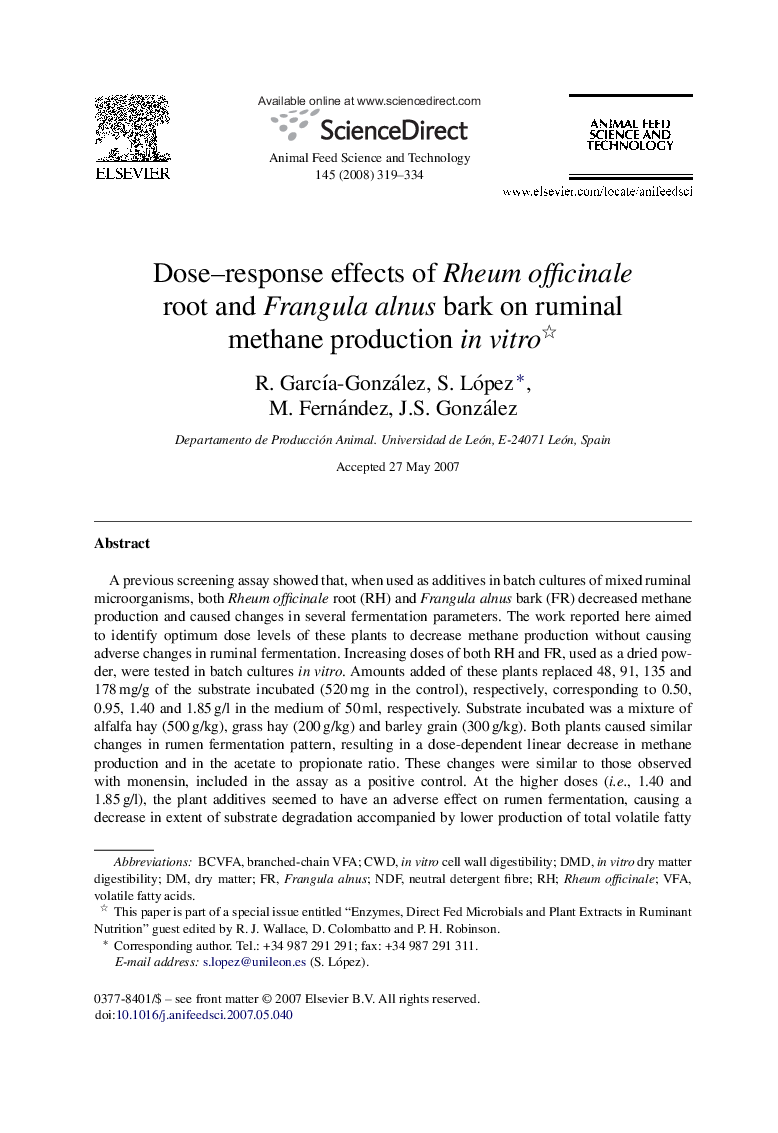| کد مقاله | کد نشریه | سال انتشار | مقاله انگلیسی | نسخه تمام متن |
|---|---|---|---|---|
| 2420644 | 1552467 | 2008 | 16 صفحه PDF | دانلود رایگان |

A previous screening assay showed that, when used as additives in batch cultures of mixed ruminal microorganisms, both Rheum officinale root (RH) and Frangula alnus bark (FR) decreased methane production and caused changes in several fermentation parameters. The work reported here aimed to identify optimum dose levels of these plants to decrease methane production without causing adverse changes in ruminal fermentation. Increasing doses of both RH and FR, used as a dried powder, were tested in batch cultures in vitro. Amounts added of these plants replaced 48, 91, 135 and 178 mg/g of the substrate incubated (520 mg in the control), respectively, corresponding to 0.50, 0.95, 1.40 and 1.85 g/l in the medium of 50 ml, respectively. Substrate incubated was a mixture of alfalfa hay (500 g/kg), grass hay (200 g/kg) and barley grain (300 g/kg). Both plants caused similar changes in rumen fermentation pattern, resulting in a dose-dependent linear decrease in methane production and in the acetate to propionate ratio. These changes were similar to those observed with monensin, included in the assay as a positive control. At the higher doses (i.e., 1.40 and 1.85 g/l), the plant additives seemed to have an adverse effect on rumen fermentation, causing a decrease in extent of substrate degradation accompanied by lower production of total volatile fatty acids (VFA). However, this inhibition did not occur with the lower doses of addition (i.e., 0.50 and 0.95 g/l). Based on effects of these plants on butyrate and branched-chain VFA produced, and on the diminished calculated hydrogen recovery, our suggestion is that these plants may have a direct effect on methanogens. In this in vitro system, doses up to 1 g/l of either RH or FR caused a decrease in methane production accompanied by changes in the VFA molar proportions, whereas other fermentation parameters were not affected, suggesting that this would be the optimum rate of addition of these plant additives when the goal is to decrease methane emissions from ruminal fermentation.
Journal: Animal Feed Science and Technology - Volume 145, Issues 1–4, 14 August 2008, Pages 319–334